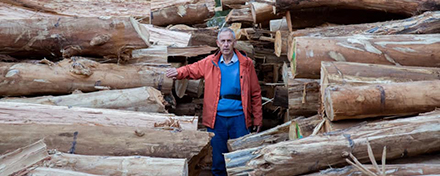Federal Labor’s decision to reject a ban on native forest logging will give the industry good reason to breathe a little easier.
The Labor Environment Action Network attempted to force the Federal Government to end native forest harvesting and replace the industry with a national plantation estate.
The motion, that would have committed Labor to “delivering the Glasgow Leaders Declaration on Forests and Land Use, which commits Australia to ‘halt and reverse forest loss and land degradation by 2030’ ” was passed, but only after the proposed ban on native timber harvesting was removed.
As acting Australian Forest Products Association CEO Natasa Sikman said, this was Labor’s endorsement of a sector that Australia and the world needs.
Of course, the report on which the Labor Environment Action Network based its original motion was flawed from the start.
The LEAN report called for the restoration of native forests, saying they have greater value if treated as a carbon and a biodiversity sink than if logged to produce mainly low-value products such as woodchips, pallets and power poles.
Instead, the report recommended the government expand Australia’s struggling plantation sector by creating a state-owned national plantation estate to “increase our domestic timber independence”.
Former Gippsland forestry scientist and historian Mark Poynter was quoted in the LaTrobe Valley Express this week as saying the report referred to “Australia’s devastating rate of logging and clearing”.
However, “at present the annual native forest harvest area is thought to be at a 100-year low,” he said.
The report says that ‘loss of habitat through logging and clearing is the key driver of the bio-diversity crisis’.
“Yet it is widely acknowledged that feral plants and animals (particularly carnivores) and un-natural fire regimes are the key drivers of biodiversity loss because they occur unregulated and simultaneously over vast expanses of the continent, whereas timber harvesting in particular is highly regulated and limited to a very minor portion of forests,” he told the Express.
Mr Poynter tole the Express the report assumed that only 1250 people are employed nation-wide in “native forest logging” apparently including forest management functions.
“Irrespective of whether or not this is accurate, there is no mention of the approximately nine times more people working in the timber industry whose jobs are reliant on those working in native forest logging to supply the industry with its raw resource,” he said.
Mr Poynter said the report completely ignored the high-value hardwood products from native forests, such as furniture, flooring, dining room tables and beds, and the new generation engineered products – large beams and columns – that are as strong as steel. These products all stored carbon.
It was clear the motion from LEAN was never going to get up.
But that won’t stop those elements that want to see native logging brought to a grinding halt at some point.
The Bob Brown Foundation plans to hold a rally outside the Labor Party Conference in Brisbane tomorrow.
So, while the timber industry does have good reason to breathe a little easier this morning, it would be well served by continuing to watch its back.






